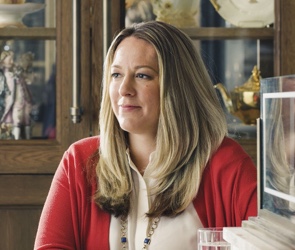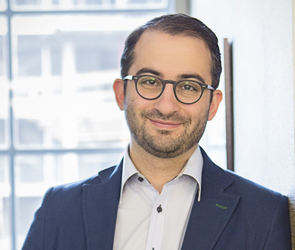
You might think that the complexity of intellectual-property legislation hinders innovation because it limits the sharing of knowledge and is costly to protect and manage. “But it’s actually the other way around,” says Jean-Sébastien Dupont, a partner at the Montreal office of Smart & Biggar, one of the top IP law firms in Canada. “If inventors and entrepreneurs weren’t able to protect their ideas, then they wouldn’t have an incentive to innovate. And they would not fully realize the commercial potential to grow their companies.”
This is, in fact, the entire point of patent law. “When an inventor files a patent, they have to disclose how their inventions work,” explains Dupont. “And so, as a society, we reward them with a time-limited monopoly on their idea.” This monopoly, in turn, improves profitability and protects market share, enhancing corporate returns over the long term.
Dupont’s litigation practice is broad. He takes on files in the areas of trademarks, copyrights and patents. But no matter what, his focus is always the same: to fully represent the business interests of his clients — which range from local steel companies to global manufacturers of hockey equipment — and fiercely protect their interests when a competitor has infringed on any aspect of their intellectual property. Here’s how those disputes play out.
How does a typical case start?
In general, a client will approach Dupont when they feel that someone has violated their intellectual property. His first move depends on the size of the alleged infringer. If it’s a small company or an individual, the process begins and often ends with a cease and desist letter.
But in the case of bigger and more sophisticated corporations, that approach seldom works in the North American market. “You can send these guys all the letters you want,” says Dupont. “They will never comply.” And so, in these cases, he usually skips the stern letter and begins by serving them with a statement of claim.
Dupont is also a trusted business advisor. He helps clients align their IP portfolio with business strategies, often identifying important IP that they should protect in order to expand market share and block potential competitors.
How often will a case reach trial?
Almost never. “Between 90 and 95 percent of all cases are settled before trial,” says Dupont. And that’s often a good thing. In the world of intellectual property, going to trial may not make business sense. “Even if you’re certain that the law is on your side, it could take up to five years to get a result that the client needs now for its business.”
But going to trial, when it’s the right course of action, is Dupont’s favourite part of the job. Trials are unpredictable and dramatic, rather than quiet and deliberate, as business negotiations frequently are. “A trial is like a theatre performance. You may have all the facts on your end, but a good litigator, like a good actor, has to be ready for anything.”
What does it take to be good at IP law?
Creativity and a strong business sense are essential. Protecting intellectual property isn’t an exact science. “Quite often, there’s no clear answer in the law,” says Dupont. “So we get cases where we actually need to define and create the law.”
At Smart & Biggar, the litigators often work on teams with experienced patent and trademark lawyers, who share their passion. Together, they get to come up with novel legal arguments. “The type of cases we work on are technically complex,” says Dupont. “They are often too big for a single individual to handle, which means we are always working together. The office in Montreal is particularly informal, very team-oriented. We have a lot of fun.”

Sponsored





